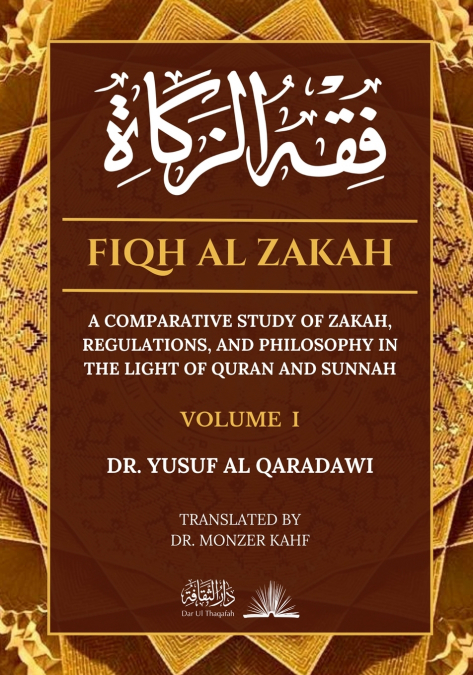
Dr. Yusuf Al Qaradawi / Dr. Monzer Kahf
 Librería Perelló (Valencia)
Librería Perelló (Valencia)
 Librería Aciertas (Toledo)
Librería Aciertas (Toledo)
 Librería Elías (Asturias)
Librería Elías (Asturias)
 Donde los libros
Donde los libros
 El AlmaZen del Alquimista (Sevilla)
El AlmaZen del Alquimista (Sevilla)
 Librería Kolima (Madrid)
Librería Kolima (Madrid)
 Librería Proteo (Málaga)
Librería Proteo (Málaga)
In the hierarchy of Islamic faith and religious duties, zakat is next only to the acclamation of Allah’s unity and prophecy of Muhammad (peace be unto him) and the five daily prayers. It is rather significant that a measure of far-reaching economic consequences should find such a high place in that hierarchy and be counted as one of the five pillars of Islam. Zakat is doubly important in the way of life that is Islam. On the one hand, it is a means of spiritual purification and, on the other, a way to regain balance and equilibrium in social and economic life. One would expect religious scholars and economists not to miss these points and pay due attention to this unique institution. However, the subject of zakat did not attract the attention of contemporary scholars to an extent commensurate with its importance. There is a need for economists, legal experts, and shariah scholars who would elaborate and analyze the law of zakat in a contemporary manner. Sheikh Yusuf al Qardawi’s book is one of those exceptions to the above, giving one hope and reassurance to continue. First published more than 3 decades ago, Fiqh al-Zakat still remains unparalleled in its comprehensiveness, exposition, and depth. It is, therefore, with great pleasure that we present it to the English reading public.Shaykh Yusuf Al-Qaradawi Born in Egypt 1926. One of the most prominent scholars of the 20th century. He memorized the Quran before the age of 10. He is an expert on principles of Islamic jurisprudence (Fiqh), the Arabic language, and other Islamic Sciences. He has published over 100 books, which are bestsellers in the Islamic world.His books cover various topics, such as: Fiqh, how to understand the Sunnah, how to understand the Qur’an, a two volume book on Zakat which many scholars consider as a treasure house for the Islamic library, environment, Fiqh of Minorities, poetry, and many other topics.Shaykh Al-Qaradawi represents an original effort to make the comprehensive rules of Islam accessible and understandable to non-specialists. He always tries to join between the principles of the religion and the problems facing Muslims today.